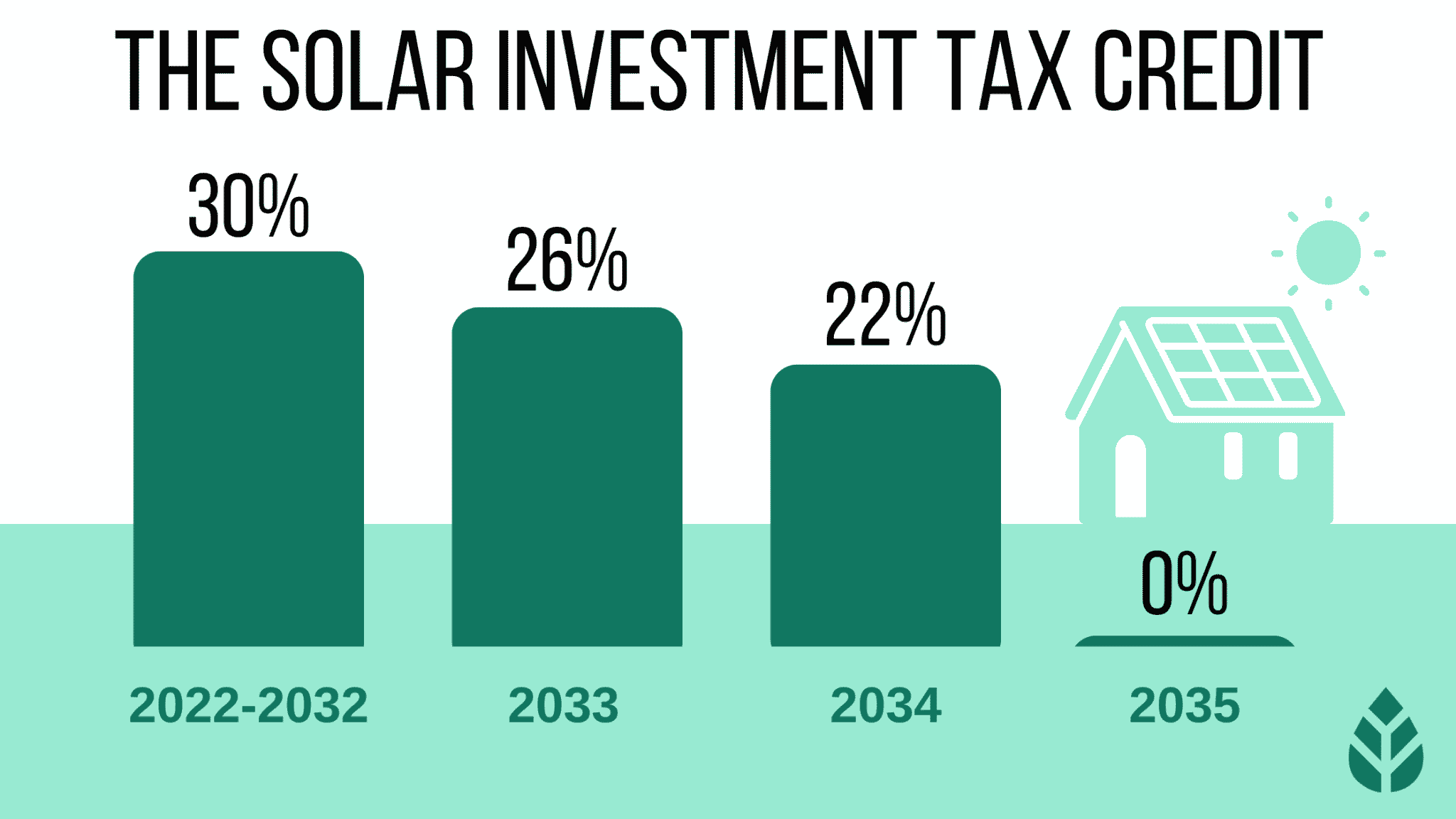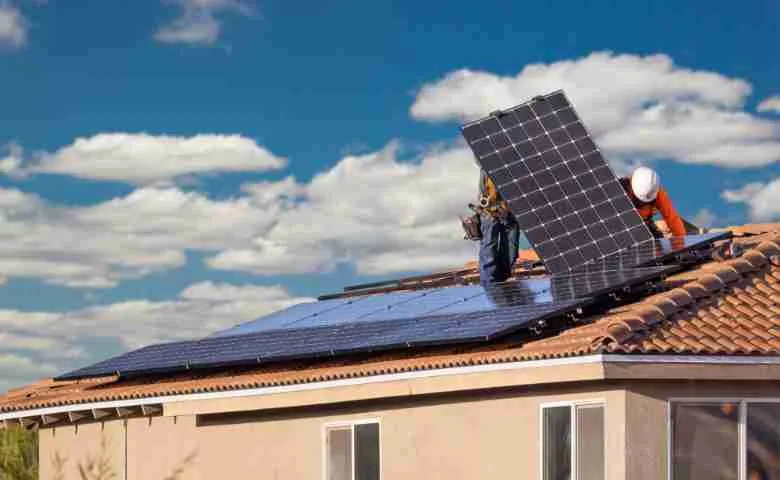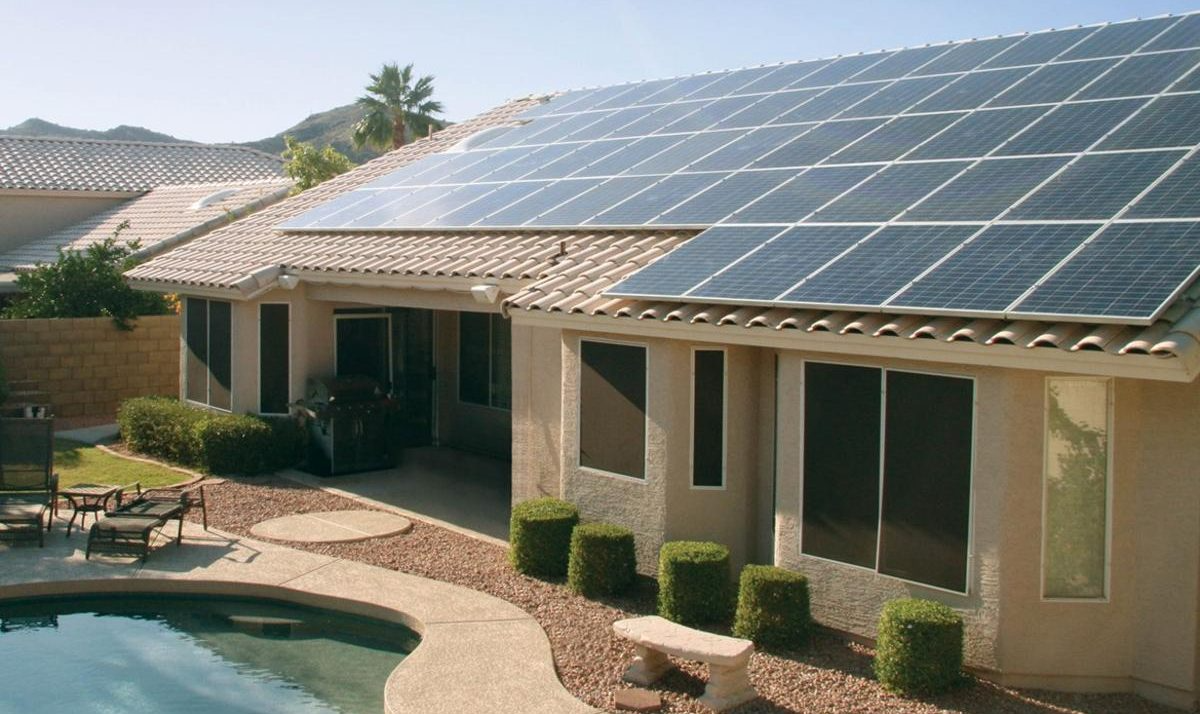The prospect of installing a home solar power system can seem daunting, particularly when considering the financial aspect. The typical cost of solar panels hovers around $16,000, making it quite a sizable investment.
However, these systems can yield substantial savings over time. Various incentives are in place at federal, state, and local levels to promote the adoption of renewable energy by homeowners. These incentives, which come in the form of rebates and tax credits, can provide financial returns for those who install eligible systems.
While incentives vary from state to state, the Federal Solar Tax Credit, also known as the Solar Investment Tax Credit, is available in all states.
What Is the Federal Solar Tax Credit?
The transition to solar energy is encouraged by a number of incentives, one of the most significant being the federal Solar Investment Tax Credit (ITC). The ITC enables homeowners who install solar panels to receive a tax credit, which effectively lowers their income tax bill.
Introduced in 2006, the ITC has been instrumental in propelling the growth of the U.S. solar industry. Over the past decade, the industry has witnessed an average annual growth rate of 50%, leading to a remarkable 10,000% increase since the inception of the ITC. This growth has generated hundreds of thousands of jobs and invested billions of dollars into the U.S. economy.
As long as your solar system is installed and generating electricity for a home in the United States, you can claim the ITC for the corresponding tax year. The current rate of the ITC is 30%, applicable for installations between 2022 and 2032.
How the Federal Solar Tax Credit Works
When you invest in a solar photovoltaic (PV) system, you become eligible for the Federal Solar Tax Credit. This credit can be claimed on your federal income taxes, and it constitutes a percentage of the cost of the solar system.
Tax Years 2022 Through 2032
Previously, the Investment Tax Credit (ITC) offered a 26% tax credit for systems installed from 2020 through 2022. However, starting from the tax year 2022 and extending through 2032, the ITC will provide a more generous 30% tax credit for newly installed systems. Therefore, potential solar panel owners should consider this 26% to 30% discount when evaluating the feasibility of solar panel installation.
Beyond 2033
Although the ITC will be around for at least the next decade, it will begin to step down in 2033 to 26%. In 2034, it will be further reduced to 22% and eliminated for the tax year 2035.
Not a Refund: A One Time Claim that Reduces Liability
It's important to bear in mind that the tax credit can only be claimed once. If the amount of taxes you owe in the year you install your solar panels is less than the value of the credit, the remaining credit will carry over to the next year. Also, it's worth noting that this credit reduces your tax liability, not a refund that would give you money back.
What the Federal Solar Tax Credit Covers
The Federal Solar Tax Credit covers 30% of the following:
- Solar-powered equipment that generates electricity or heats water
- Solar power storage equipment for 2022, but a capacity of at least 3 kilowatt hours (kWh) is required beginning in 2023
- Qualifying installation and labor costs
- Sales taxes paid for eligible solar installation expenses
Are You Eligible for the Federal Solar Tax Credit
You are eligible to claim the credit if your solar system was installed in your residence in the US between January 1, 2017, and December 31, 2034. This also includes a purchase or interest in an off-site community solar project, if the electricity generated is credited against and does not exceed your home’s electricity consumption.
Other key eligibility requirements include:
- You must own your home. Renters are unfortunately excluded.
- The solar panel system must be new or being used for the first time.
- You must own the solar panels and earn taxable income.
- The installation must occur at your primary or secondary residence.
The Inflation Reduction Act
The Solar Investment Tax Credit (ITC) has long served as a major incentive for homeowners looking to transition to solar energy. On August 16, 2022, the Federal Government enacted the Inflation Reduction Act of 2022, which included several measures to promote cleaner energy solutions.
Solar Tax Credit Extension
One of the most significant provisions of this act was the increase and extension of the Residential Clean Energy Credit, also known as the Solar Investment Tax Credit (ITC). The ITC allows individuals who install solar systems on residential properties to claim a tax credit against their income tax.
Previously set at 26%, the ITC was increased to 30% under the new legislation. Rather than decreasing in the following year as initially planned, this elevated rate will now remain in effect until 2032. The updated tax credit applies retroactively to solar energy systems installed during the 2022 tax year.
Questions about installing our eligible solar PV system? Let US Solar Suppliers team guide you! Contact us today for a consultation.








